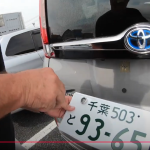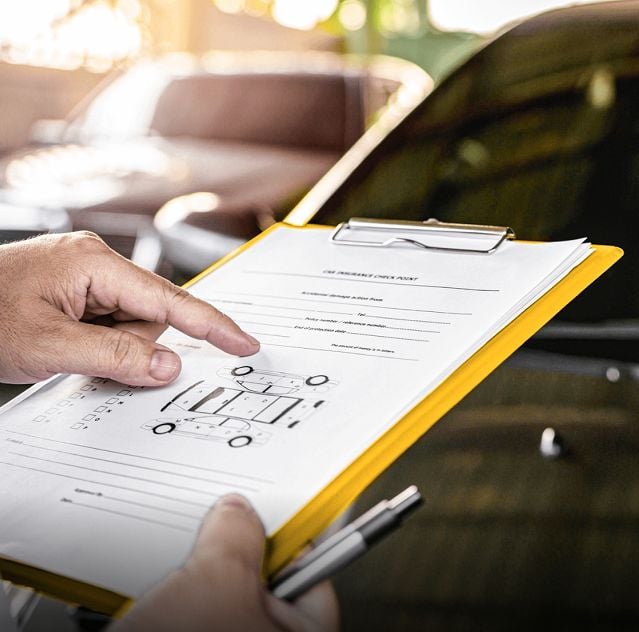

Why Japanese Used Cars Are in Better Condition Than You Think
Most people think “used car” means headaches. Rust. High mileage. Dodgy sellers. But that’s not the case in Japan.
Japanese used cars are in far better condition than most people expect. Clean interiors, low kilometers, excellent service history—these are normal in Japan’s used car market.

Whether you’re importing a car for personal use or resale, here’s why Japan should be your first choice.
1. Japan’s Strict Shaken Inspection System
Shaken is a government-mandated vehicle inspection.
- Done every 2 years (after year 3 of ownership)
- Includes brakes, tires, suspension, emissions, and underbody
- Minor issues can result in failure
Most owners maintain their cars to pass Shaken smoothly. If repairs are too costly, they often sell early—meaning you get a car that’s still in top shape.
2. Low Annual Mileage
- Public transportation is excellent in Japan
- Cars are used for short trips or weekend driving
- It’s not uncommon to see 10-year-old cars with under 70,000 km
Compare that to a car in the U.S. or Europe that sees 15,000–25,000 km per year. You’re getting a vehicle with more life left in it.
3. Japanese Take Care of Their Cars
In Japan, taking care of your car is a cultural norm. Cars are kept clean, serviced regularly, and rarely abused.
- Regular oil changes and checkups
- Professional cleaning and detailing
- Very few modifications on family cars
The result? You get a vehicle that often feels like new—even if it’s over a decade old.
4. Most Cars Are Kept Indoors
UV damage, hail, and snow are common threats in other countries. In Japan, cars are often kept:
- In private garages
- Under apartment parking structures
- Protected by car covers
This preserves the paint, dashboard, and upholstery better than in outdoor environments.
5. Detailed Auction Grading System
Used cars in Japan go through a rigorous auction inspection process. Every vehicle is given:
- An overall grade (e.g. 4.5, 4, 3.5, R)
- Interior and exterior condition ratings
- Diagrams showing any damage or repairs
This transparency gives you confidence in what you’re buying. No guessing. No surprises. Just facts.
6. Cars Are Sold Early
Why are cars in such good condition? Because people in Japan often sell early due to:
- Expensive Shaken renewals
- Tax incentives for hybrid or EV upgrades
- Prestige in owning a newer car
This means the used cars available aren’t unwanted junk—they’re still very usable and desirable.
7. Engines Are Reliable and Lightly Used
Japanese engines are famous for longevity. But here’s why they last even longer in Japan:
- Lower speeds and fewer harsh conditions
- City driving with limited long-distance hauling
- Routine fluid checks and manufacturer servicing

Even turbocharged models like the Subaru Legacy GT or Mitsubishi Delica show remarkable resilience when maintained properly.
8. Original Parts Are Common
In many countries, used cars are patched up with cheap aftermarket parts. In Japan:
- OEM (Original Equipment Manufacturer) parts are preferred
- Service is done at brand dealerships
- Many cars are untouched—no sketchy modifications
This is especially helpful when reselling in your country.
9. Reliable Exporters Help Screen CarsNot all cars are worth exporting. That’s why trusted agents like USS-NINJA.com carefully screen vehicles for:
- Low rust
- Accurate grading
- Mileage authenticity
This extra layer of care ensures international buyers only get the best units.
10. Classics and JDM Cars Are Treated Like Royalty
JDM legends—like the Nissan Skyline GT-R, Toyota Supra, and Mazda RX-7—are collector’s items in Japan.
- They’re often garaged, serviced, and polished regularly
- Many have full service history or restoration logs
- Condition matters to their owners and their fans
If you’re importing for resale, these are goldmines.
Real Buyer Experience: From Japan to the UAE
One buyer in Dubai imported a 2010 Toyota Land Cruiser Prado. It arrived with:
- 74,000 km on the odometer
- Full auction grade sheet (4.5)
- No rust or mechanical issues
He resold the vehicle for a 30% profit within 60 days. The condition stunned even local buyers who are used to GCC models.
What Countries Benefit Most?
🇺🇸 USA
- JDM sports cars (25+ years old)
- High demand for nostalgia and rarity
🇦🇺 Australia
- Right-hand-drive cars are road legal
- Imports popular in mining and farming regions
🇬🇧 UK
- JDM performance and diesel vans in high demand
- Rust-free bodies preferred over local supply
🇦🇪 UAE
- VIP and off-road vehicles dominate the demand
- Low mileage units preferred over locally abused ones
Summary: Why Japanese Cars Win
- Inspected every 2 years
- Low mileage and careful ownership
- Garage-kept, clean, and unmodified
- Transparent auction system
- Trusted exporters like USS-NINJA.com screen for quality
In short, Japanese used cars aren’t “used” in the traditional sense. They’re preserved, documented, and respected machines.
And that’s why buyers around the world continue to trust the Japanese car auction system year after year.
Frequently Asked Questions (FAQ)
Q: How do I check if a car is in good condition?
Look at the auction sheet grade and diagrams. Grades 4 and above are typically excellent.
Q: Are Japanese used cars really that clean?
Yes. Most are regularly cleaned, detailed, and lightly driven.
Q: What’s the average mileage on a 10-year-old Japanese car?
Usually between 60,000–90,000 km. Much lower than the global average.
Q: How do I buy one?
Use a trusted export agent like ussninja.com. They’ll give you auction access and handle everything.
Q: What is “Grade R” on the auction sheet?
It means the car was repaired after an accident. You can still buy it—but inspect closely.
Q: Can I get service records?
Some cars come with full logs. Others rely on the auction sheet for history.
Q: Are classic Japanese cars still in good condition?
Yes, especially if they were owned by collectors or tuners. Many are better than newer cars.
Q: Why do so many people buy from Japan?
Quality, transparency, and value. You get more for your money and fewer surprises.
Table of Contents
Add a comment Cancel reply
Categories
- Auto Detailing (6)
- Car News (61)
- Car Reviews (50)
- Classic Cars (26)
- Importing Rules By Country (9)
- Japan Car Auctions (14)
- JDM (21)
- News (4)
- Uncategorized (31)
Recent Posts
About us

I am not one for writing articles actually so most of these articles come from contributors that I have met over the years or with a little help of supporters.
If you have any desire to import a car from Japan or simply need some advice get in touch via Whatsapp here at +81-90-5400-6384
Looking For That Special Car Has Never Been Easier.
Finding the right car in Japan is not always easy and finding the best partner in Japan to help you with this is sometimes even harder.
With over 25 years buying history and great contacts all over Japan I can help you in every way.
Get hold of me today!
Popular Tags
Related posts


The Truth About Buying Cars Online


How to Buy a Car from Japan Online: Insider Tips from a Trusted Auction Agent


Japan Car Auctions vs. Local Dealerships: Which Is Better for Import Buyers?







